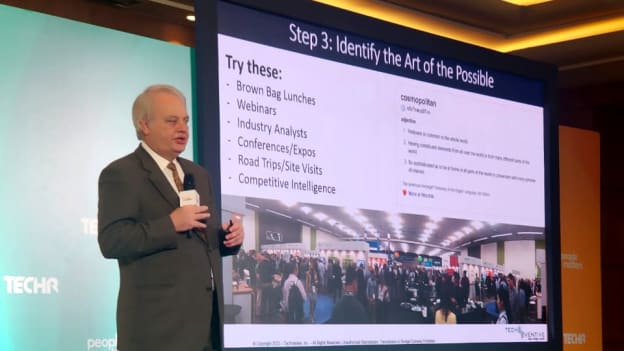How HR can add value to ESG initiatives

Recent years have seen a radical shift in the roles that HR leaders play in organisations globally due to the pandemic's effects on social consciousness and movements like the Great Resignation. HR leaders now face the task of aligning ESG initiatives with stakeholder expectations, as ESG matters to investors, board members, employees, customers, and communities.
ESG isn't just a buzzword—it's a crucial factor in talent management today. ESG performance, for instance, is becoming increasingly important when attracting and retaining employees, especially during a time when finding and retaining top talent is difficult.
HR now assumes a strategic role in balancing talent and sustainability efforts. Their role extends to nurturing a workforce that possesses a concern for society and the environment, driving diversity to create a more profound impact, and equipping employees with the necessary training to spearhead effective governance.
Discussing the intricate interplay between HR and ESG initiatives, Brian Sommer, the Founder and President of TechVentive, shared a perspective that went beyond the conventional understanding of ESG as a checklist for compliance.
This makes sense at a time when a company's reputation depends not only on its profits but also on its ethical values. Brian's perspective mirrors the transformation of HR. Once seen as a simple operational cog, HR has morphed into a force that drives change. It's now about more than just numbers; it's about telling stories that push ESG achievements. These stories draw from the knowledge stored within HR systems, including various metrics, employee well-being measurements, and more, according to Brian.
Beyond figures and accolades, Brian emphasised the importance of authenticity in ESG reporting. He underscored the importance of revealing the dedication, challenges, and steadfast determination underpinning statistical data instead of focusing solely on recognition. This entails presenting an image that appeals to stakeholders, audiences, and regulatory agencies equally.
Brian encouraged HR experts to expand their impact by weaving ESG considerations into the core of supplier networks, partnerships, and customer interactions. HR's domain, once limited, now stretches to orchestrate the smooth integration of ethical practices throughout the intricate threads of the value chain, he said.
Beyond conventional roles like fostering diversity and ethical governance, HR now operates on an elevated canvas, shaping a future that's sustainable and ethically grounded, Brian argued.
HR's role in ESG: 5 key insights from Brian Sommer
ESG's comprehensive evolution: ESG has expanded beyond its initial environmental focus, encompassing environmental, social, and governance dimensions. This approach mirrors the ethical shift in business paradigms, where values take precedence.
Authentic ESG storytelling: HR goes beyond data curation to become narrators of ESG achievements. By leveraging HR data, professionals construct narratives rooted in diversity, well-being, and talent metrics, amplifying the resonance of sustainability efforts.
Transparency drives genuine progress: Authenticity holds more weight than accolades in ESG reporting. The genuine narrative of progress emerges from sharing the entire journey, including challenges, struggles, and milestones. This transparency fosters trust among stakeholders.
ESG's cross-value chain impact: HR's influence extends to suppliers, partners, and customers, intricately weaving ESG considerations into every strand of the value chain. ESG's domain is no longer confined to organisational boundaries; it extends across collaborative ecosystems.
HR as ethical architects: HR professionals transition from administrators to strategic architects, preparing diverse workforces and nurturing ethical governance. This transformation within HR is fundamental to steer businesses toward responsible trajectories.















